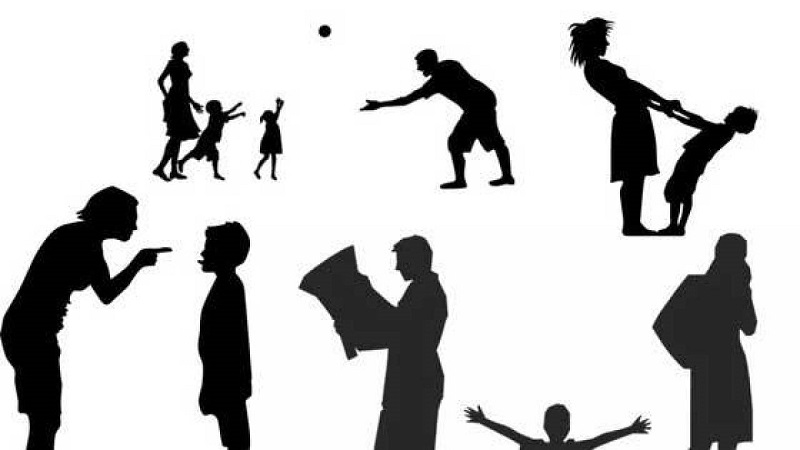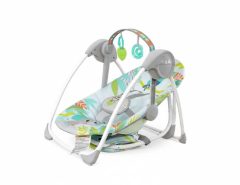In the 1980s, American psychologists Diana Baumrind and Eléanore Maccoby identified 3 parenting styles: authoritarian, permissive and democratic. Let’s take a look at these families.
Authoritarian family
At Léa’s, it is the parents who decide, the children have no say. They govern and control Léa’s life since they are adults. Mom decides how Léa should dress, what activities she should carry out and papa demands that she finish her plate before leaving the table. Her parents demand it and Léa performs (or not! Which sometimes gives rise to conflicts!) The rules are strict and Léa knows them well (even if she does not agree with some of them). At Léa, we give little importance to emotions. Whether they are pleasant or not: “we do not have a whim! we explode no joy in front of everyone! a little outfit anyway! ” Feelings are not shared, so much so that Lea doesn’t even know that her mom loves her since she never told him! (She still suspects a little…)
Advantages:
Léa’s parents do not waste time discussing the rules since they are immutable.
The frame provides benchmarks and security in Léa’s life.
The inconvenience:
Léa does not want to respect rules she deems useless
Leah is cut off from her emotions, she can hardly express her sadness or her joy
Léa lacks self-confidence since she is not considered as a person capable of making decisions
Léa experiences anger towards her parents who do not leave her room to express herself
Arthur’s permissive family
At Arthur, it’s cooler! Here there are almost no rules or rules that are unclear and easily circumvented. Arthur has great freedom, he can do what he wants when he wants, it is he who decides. When Arthur makes his cinema, mom gives in every time, suddenly he benefits a little! He knows that by crying he will get what he wants. Arthur’s parents listen to their son’s emotions when they are available. However, they sometimes feel helpless in the face of the behavior of Arthur who thinks that everything is allowed.
Advantages:
Arthur is free to experiment and learn as he wishes
Arthur is very independent for his age
The inconvenience:
Arthur has no bearings, he sometimes feels insecure
Arthur sometimes has behaviors that are deemed to be “child king”
Since he has no framework at home Arthur finds it difficult to respect that of the school
Arthur sometimes takes himself for the adult with responsibilities that are not his.
Arthur sometimes feels alone, like abandoned
Sarah’s democratic parents
With Sarah, certain rules are imposed by her parents and others are co-built as a family. Once a month they meet in the living room to talk about the rules, going to school, weekend activities … They call it the family council! When Sarah does not agree with a decision, she can express her point of view, give her opinion. Her parents encourage her to discuss and find solutions on her own. They invite her to experiment, discover and do it alone, like a big girl. She has the freedom to develop her potential and her talents in a caring and structuring environment. Your emotions are listened to and welcomed by his parents. She can speak freely about her moods. The limits are clear and Sarah is not tempted to cross them since it was she who set them as a family.
Advantages:
Sarah has enough self-confidence to test and find out
Sarah knows she can count on her parents’ unconditional love
Sarah has the ability to find solutions to her problems
Sarah can freely express her emotions
Sarah accepts the “no” much more easily since we explain to her why
Sarah feels loved for what she is
The inconvenience:
Sarah’s parents mobilize a lot of time and energy for their daughter (but isn’t that the basis of our parenting job?)
You will notice I have voluntarily enlarged the line in these portraits of families. I used stereotypes to place his parents in boxes (all I hate) the goal was to make the explanations more concrete.
You will not be surprised to learn that the work of Diana Baumrind and Éléanore Maccoby concluded that the democratic style is by far the most conducive to the development of our children. Indeed, authoritarian and permissive parenting styles have long-term negative effects on children: lack or excess of confidence, rebellion, withdrawal, bitterness … The democratic style promotes social and academic success and develops a feeling of well-being.
We often mistakenly think that positive education is lax and permissive, that we cede everything to children. In reality, it is not so, we simply recognize the child’s capacity for judgment and decision, we let him do his own experiences while accompanying him, we let him learn from his mistakes. The rules are present, they are fair and known to the child. It’s up to you to choose your side.
You may also like to read- http://studywatches.com/
Tags: best parenting styles, parenting styles




Leave a Reply